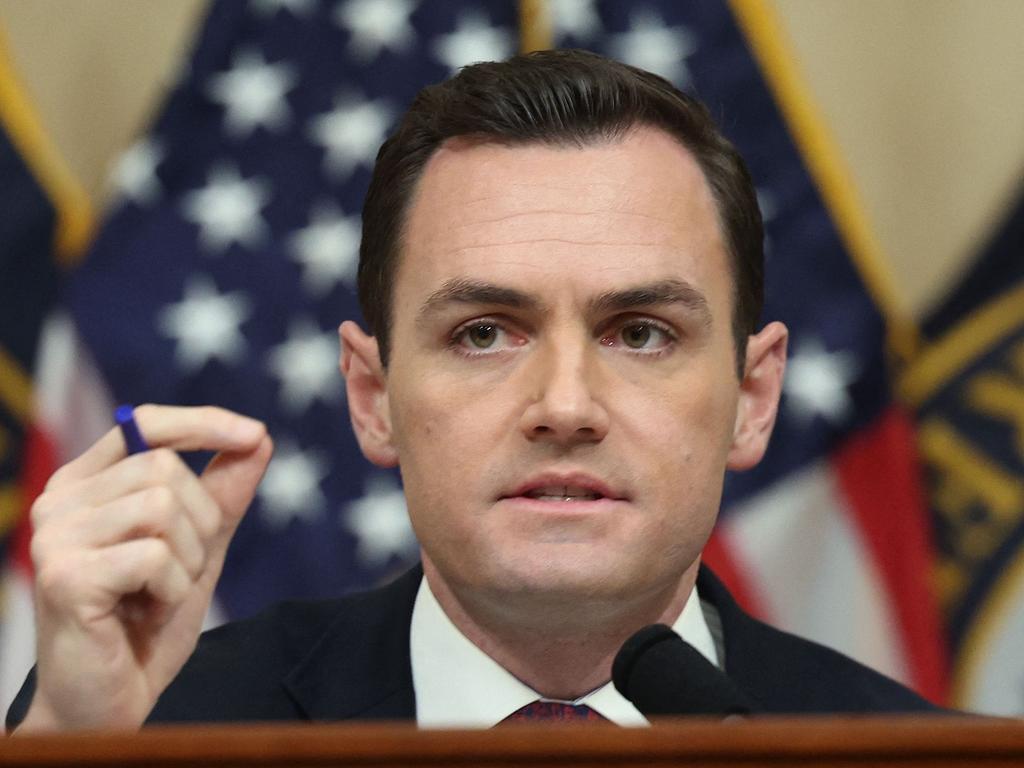AUKUS is in US national interest, says former Republican congressman
Lowy Institute poll finds Australians’ trust in the US has sunk to a historic low, with just 36 per cent saying they trust the US to ‘act responsibly in the world’.

Former US Republican congressman and military intelligence officer Mike Gallagher says it is in the US national interest to hold up its end of the AUKUS submarine pact and the Quad grouping could become an “energy alliance” to “scare the crap out of the Chinese Communist Party” by integrating Australia’s critical resources reserves.
Mr Gallagher downplayed US concerns about its ability to sell Australia nuclear-powered Virginia-class submarines under the AUKUS agreement, given shortfalls in its own manufacturing capacity, saying “next-generation AI (artificial intelligence)-enabled shipbuilding” could speed up manufacturing and that key Trump administration figures were committed to “revitalising American shipbuilding”.
Mr Gallagher spoke to The Australian for a pre-recorded interview to be shown in full at The Australian’s Defending Australia summit, which will feature keynote addresses by Defence Minister Richard Marles and South Australian Premier Peter Malinauskas, and Q&A with Chief of the Defence Force David Johnston.
This comes as the latest annual Lowy Institute poll found that Australians’ trust in the US had sunk to a historic low, with just 36 per cent of 2117 nationally representative respondents saying they trusted the US to “act responsibly in the world”.
This was a precipitous 20-point drop since the year prior.
Most of this movement happened among older Australians, the Lowy Institute reported – a 30-percentage-point fall for those aged 45 or over – compared to a smaller 10-point fall in those aged between 18 and 45.
Even lower was US President Donald Trump’s popularity, with just 25 per cent of respondents saying they had confidence he would “do the right thing” in world affairs.
However, 80 per cent of Australians still thought the US was important for Australian security, a figure consistent with previous years.
Just 20 per cent of respondents said they trusted China to act responsibly in the world, an incremental three-point upgrade from last year, up from the record low of 12 per cent in 2022. The poll also found half of respondents (51 per cent) thought Australia should increase defence spending, 37 per cent thought the current level should be maintained, and 10 per cent thought it should be decreased.
Support for AUKUS polled at 70 per cent, up incrementally from 67 per cent the year prior and 65 per cent the year before that.
The AUKUS agreement has had doubts cast over it since the US Defence Department last week announced it would conduct a review of it and the pact’s alignment to Mr Trump’s “America First” agenda.
Mr Gallagher told The Australian – in an interview recorded before the Pentagon announcement – that he was “cautiously optimistic” the US submarine building capacity would increase to a point where it would have enough to sell to Australia.
“I just interviewed the secretary of the navy … and they are committed to revitalising American shipbuilding,” he said. “The Deputy Secretary of Defence wakes up every single day thinking about submarine production.
“So a lot of work to be done. You know, there’s going to be challenges. I would say the trade aspect of the relationship is probably the biggest source of friction.
“But when it comes to the foundation of our military alliance, I’m very confident that not only will the Trump administration build upon the foundation that exists, but there will be a bipartisan, overwhelming supermajority in congress that’s committed to building and modernising the alliance as well.”
He said the Australia-US relationship would grow in importance for America as competition with China over the Pacific ratcheted up.
Australia had a big role to play in addressing the “huge problem” left by the potential for more Chinese influence in the Pacific following the withdrawal of US aid funding from the region after Elon Musk’s erstwhile department of government agency axed USAID.
He also highlighted Australia’s reserves of rare earth minerals. “There’re a lot of areas surrounding Perth with rich economic resources when it comes to rare earth, with deep expertise when it comes to mining, where we could really combine forces in an economic domain,” he said. “And that to me is exciting. That could be the foundation of turning the Quad into something beyond just a diplomatic meeting club into almost an energy alliance that would scare the crap out of the Chinese Communist Party.”







To join the conversation, please log in. Don't have an account? Register
Join the conversation, you are commenting as Logout